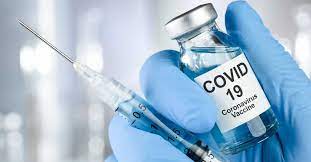Simvastatin is a low-cost and available medicine listed as essential medicines by the World Health Organization (WHO). This drug has anti-inflammatory and immunomodulatory effects. It has been reported that it can reduce pulmonary and systemic inflammation in murine and human models of lung injury. However, its activity in this area has not been very clear.
The evaluation of simvastatin (80 mg per day) in critically ill patients with COVID-19 who were not receiving statins at the beginning of the study, compared to patients without this regimen as a control. They analyzed the time (days) without support of respiratory and cardiovascular organs, evaluated on an ordinal scale that combined in-hospital death and days without this support, until day 21 in survivors.
The study demonstrated a 95.9% probability that simvastatin treatment was superior to standard care, taking into account days without organ support and death.
In conclusion, the findings are consistent with the observed data that statin use is associated with a better prognosis in critically ill patients with COVID-19. However, simvastatin did not meet the prespecified criteria for superiority over the control.
People in the United States now have access to a new batch of COVID-19 vaccines that are more tailored to many of the COVID-19 variants currently circulating across the country.
Many pharmacies and doctors’ offices are stocked with the updated mRNA vaccines from Pfizer-BioNTech and Moderna as well as the Novavax vaccine.
The updated vaccines from Moderna and Pfizer-BioNTech received approval from the Food and Drug Administration (FDA) last year and are now available in many pharmacies and doctor’s offices nationwide.
Health officials recommend that everyone 6 months and older receive one of three available options ahead of the fall and winter virus season.
Director Dr. Peter Marks, director of the FDA’s Center for Biologics Evaluation and Research, explained that “Vaccination remains essential for public health and continued protection against the serious consequences of COVID-19, including hospitalization and death”, “The public can be assured that these updated vaccines have met the agency’s rigorous scientific standards for safety, efficacy and manufacturing quality.”
The most recent vaccines are designed to combat the XBB.1.5 strain of omicron. The new studies also suggest that the vaccines will be effective against BA.2.86, a new variant that is not yet widely circulating but has recently attracted the attention of scientists due to its multiple mutations.
The announcement of the approval of these new vaccines coincides with an increase in COVID-19 infections, hospitalizations and deaths. Researchers fear these trends will continue into the fall and winter, which are the seasons when respiratory viruses emerge.
According to Mr. David Montefiori, director of the AIDS Vaccine Research and Development Laboratory at Duke University Medical Center, most people in the United States and other parts of the world have not received a booster. for more than a year, and it is known that immunity to this virus decreases over time. Therefore, it is important that they continue receiving their booster shots.
FONT
https://www.savalnet.cl/cienciaymedicina/destacados/avances-en-el-tratamiento-de-covid-19.html
https://www.savalnet.cl/cienciaymedicina/destacados/avances-en-el-tratamiento-de-covid-19.html








